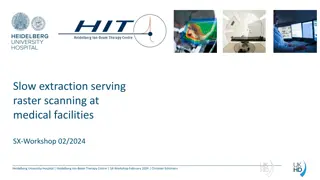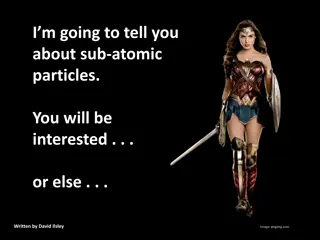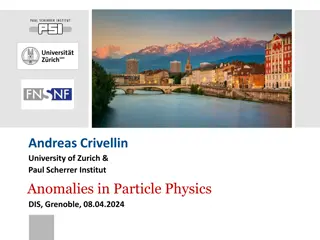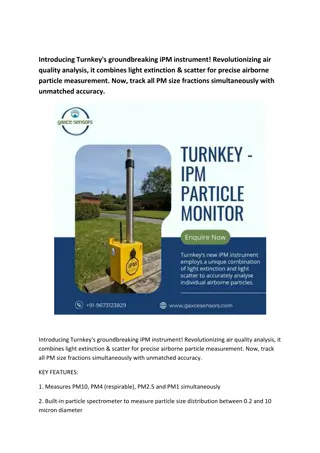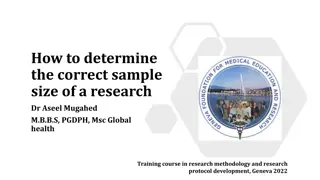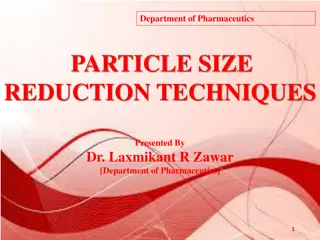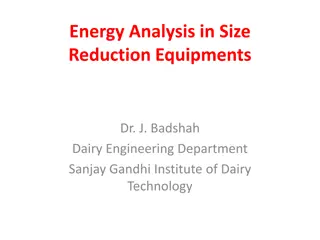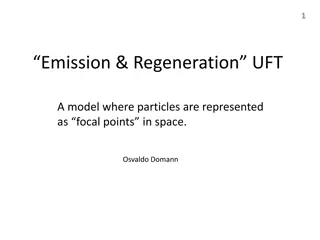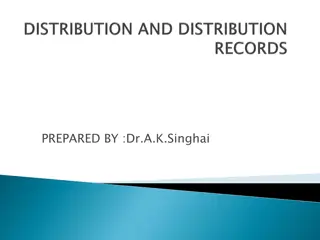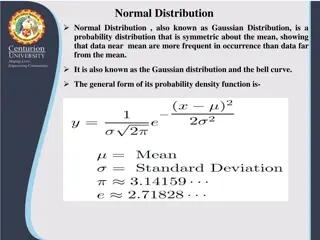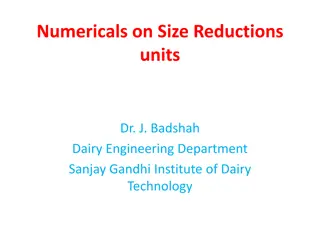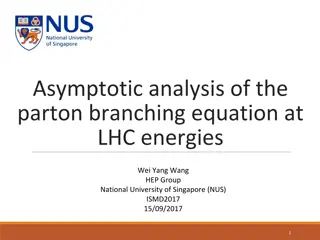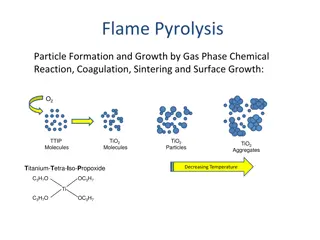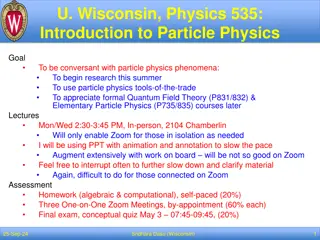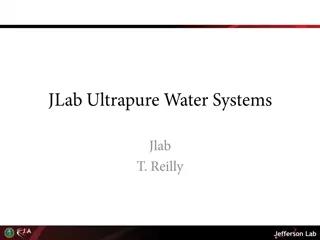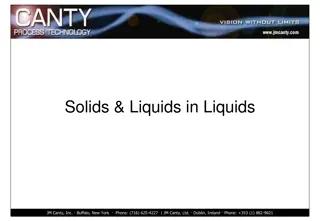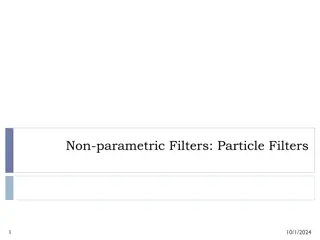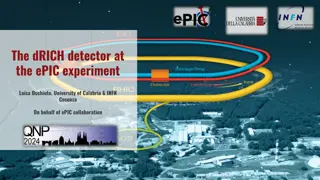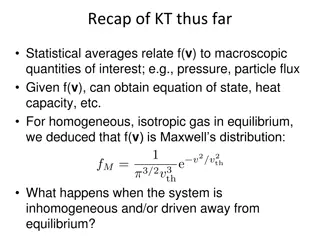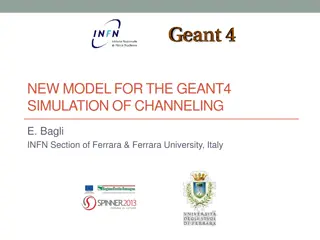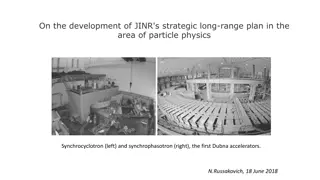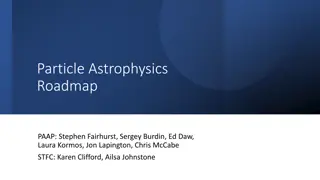[PDF⚡READ❤ONLINE] Cosmology and Particle Astrophysics (Wiley-Praxis Series in As
\"COPY LINK HERE ; https:\/\/getpdf.readbooks.link\/0471970417\n\n[PDF READ ONLINE] Cosmology and Particle Astrophysics (Wiley-Praxis Series in Astronomy & Astrophysics) | Cosmology and Particle Astrophysics (Wiley-Praxis Series in Astronomy & Astrophysics)\n\"\n
0 views • 6 slides
Building a FAIR-Compliant Platform for AI-Ready Data in Particle Accelerators
This content discusses the development of a FAIR-compliant platform for AI-ready data in particle accelerators, highlighting the applications of machine learning in various accelerator facilities like CERN, PETRA-III, NSLS-II, HEPS, and more. It emphasizes the importance of high-quality data in acce
2 views • 25 slides
European Particle Physics Strategy Update & Accelerator R&D Overview
European Particle Physics Strategy updates serve as the cornerstone for long-term decision-making in the field, with a focus on Accelerator R&D for High Energy Physics. The update process involves key questions, R&D strategies for RF technologies, and implementation plans. Approved strategies emphas
7 views • 25 slides
Advances in Particle Therapy: Slow Extraction and Dose Delivery at Medical Facilities
Medical facilities, like Heidelberg University Hospital, utilize advanced techniques such as slow extraction and raster scanning for precise dose delivery in particle therapy. The demands on these facilities include safe and precise beam parameters, uninterrupted therapy sessions, and fast irradiati
2 views • 23 slides
The Evolution of Sub-Atomic Particle Theory
Human pursuit of understanding the universe led to the concept of atoms by Democritus and further advancements in sub-atomic particle theory. From the initial idea of indivisible atoms, to the discovery of protons, neutrons, and electrons, to modern experiments with particle accelerators, the journe
2 views • 24 slides
Anomalies in Particle Physics: Discoveries and Implications
Explore the intriguing anomalies in particle physics discussed by Andreas Crivellin, shedding light on phenomena like the anomalous magnetic moment of the muon, X17 particle, and neutrino anomalies. Discover the latest research findings and potential implications for the future of physics.
3 views • 42 slides
Introducing Turnkey's groundbreaking iPM instrument
\nIntroducing Turnkey's groundbreaking iPM instrument! Revolutionizing air quality analysis, it combines light extinction & scatter for precise airborne particle measurement. Now, track all PM size fractions simultaneously with unmatched accuracy. \nKEY FEATURES:\n1. Measures PM10, PM4 (respirable),
2 views • 2 slides
Determining Sample Size for Research Studies: Factors and Considerations
Sample size estimation in research is a crucial step that involves various factors such as effect size, population standard deviation, power of the experiment, and significance level. The effect size indicates the practical significance of research findings, with common measures like Cohen's d and P
2 views • 24 slides
Particle Size Reduction Techniques in Pharmacy: A Comprehensive Overview
Particle size reduction techniques in pharmaceutics are crucial for processing materials into desired sizes for various applications. This presentation by Dr. Laxmikant R. Zawar covers important methods such as rotary cutter mill, mortar and pestle, roller mill, and more. Each technique, including i
2 views • 25 slides
Size Separation in Pharmaceutical Processing
Size separation is a crucial unit operation in pharmaceutical manufacturing, involving the segregation of particles based on physical differences like size, shape, and density. This process, also known as sieving or screening, is essential for improving powder mixing, particle solubility, and stabil
1 views • 31 slides
Comminution and Particle Size Reduction in Pharmaceutical Processes
Comminution is the process of reducing particle size from larger to smaller particles, crucial in various industries like pharmaceuticals. This operation involves milling, grinding, and size reduction to make raw materials usable. The particle size plays a significant role in pharmaceutical formulat
3 views • 50 slides
Energy Analysis in Size Reduction Equipments
This comprehensive overview delves into the energy analysis involved in size reduction equipment, exploring topics such as objectives of size reduction units, sieve analysis for particle size distribution, mesh number system, and mathematical models for energy analysis in size reduction units. Dr. J
1 views • 11 slides
Realistic Particle Representations and Interactions in Emission & Regeneration UFT
The presentation explores a model in which particles are depicted as focal points in space, proposed by Osvaldo Domann. It delves into theoretical particle representations, motivation for a new approach, and the methodology behind the Postulated model. Additionally, it delves into particle represent
2 views • 24 slides
Key Management and Distribution Techniques in Cryptography
In the realm of cryptography, effective key management and distribution are crucial for secure data exchange. This involves methods such as symmetric key distribution using symmetric or asymmetric encryption, as well as the distribution of public keys. The process typically includes establishing uni
2 views • 27 slides
Size and Spacing of Rural Settlements in Geography Research
This presentation delves into the significant influence of size and spacing on the distribution pattern of rural settlements. It explores how factors like population size, areal size, topography, soil fertility, and more impact the density and distribution of settlements, categorizing them based on
3 views • 15 slides
Drug Product Distribution Procedures and Records
Written procedures and distribution records are crucial for the efficient distribution of drug products. Procedures should prioritize the distribution of the oldest approved stock first and enable easy recall if necessary. Distribution records must be maintained and indexed for accountability. Diffe
1 views • 10 slides
Normal Distribution and Its Business Applications
Normal distribution, also known as Gaussian distribution, is a symmetric probability distribution where data near the mean are more common. It is crucial in statistics as it fits various natural phenomena. This distribution is symmetric around the mean, with equal mean, median, and mode, and denser
2 views • 8 slides
Pharmaceutical Dosage Form Design and Drug Delivery Systems Overview
Understanding pH-solubility profiles of drugs like indomethacin, chlorpromazine, and oxytetracycline is crucial in formulating pharmaceuticals. Factors affecting dissolution rates, such as particle size and solubility, can be optimized to enhance drug absorption. Different methods like particle size
0 views • 46 slides
Numericals on Size Reduction Units in Dairy Engineering
Explore numerical examples related to size reduction units in the field of Dairy Engineering, covering critical rotational speeds in ball mills, grinding operations in pulse mills, and energy requirements for particle size reduction. Learn calculations for operational speeds, Rittinger's and Kick's
1 views • 5 slides
Insights into Parton Branching Equation at LHC Energies
Multiplicity distributions play a crucial role in understanding the cascade of quarks and gluons at the LHC energies, revealing underlying correlations in particle production. Popular models like Monte Carlo and statistical models are used to describe the charged particle multiplicity distributions.
1 views • 17 slides
Flame Pyrolysis: Particle Formation and Growth Mechanisms
Understanding the intricacies of flame pyrolysis for particle formation and growth involving gas phase chemical reactions, coagulation, sintering, and surface growth processes. The method explores the effects of different reactants, temperatures, nozzle quenching, and electric field control on parti
0 views • 53 slides
Mixtures: Solutions, Colloidal Dispersions, and Suspensions
Food mixtures can be classified based on particle size distribution, with the dispersed phase scattered throughout a continuous medium. Solutions, a type of mixture, consist of a solute (dispersed phase) and a solvent (continuous phase), forming a homogenous blend. Factors like temperature, particle
0 views • 80 slides
Introduction to Particle Physics at U. Wisconsin: Physics 535
Dive into the captivating world of particle physics with Physics 535 at University of Wisconsin. Explore phenomena, delve into Quantum Field Theory and Elementary Particle Physics, and prepare for research work. Engage in in-person lectures supplemented by Zoom for those in isolation. Utilize textbo
0 views • 8 slides
Bubble Size Distribution Using Magnetic Particle Tracking
Explore the methodology of determining bubble size distribution in fluid beds through Magnetic Particle Tracking (MPT). Learn about MPT key features, information obtained from 3D trajectory data, and the application of MPT for characterizing fluidized solids behavior. The usage of magnetic tracers a
0 views • 24 slides
Water Quality Analysis Results and Instrument Specifications
Water quality analysis results including resistivity, TOC levels, particle counts, and instrument specifications for a water purification system. The analysis shows values for resistivity, TOC levels, particle size distribution, temperature, pressure, flow rates, and more. Various instruments from M
0 views • 9 slides
Comprehensive Lesson on Distribution Planning and Setup
This detailed lesson plan covers essential aspects of distribution systems, planning, setups, layouts, and actors involved in the distribution cycle. Participants will learn about distribution types, considerations, and evaluation criteria to ensure successful distribution operations. The session in
0 views • 22 slides
Vision-Based Particle Analysis Techniques for Solids and Liquids Measurement
Solids and Liquids in Liquids and Solids in Liquid Measurement are performed by JM Canty, Inc. Their innovative vision-based particle analysis techniques involve dynamic imaging with high-intensity light sources and cameras to measure particle size, shape, and concentration in various liquid systems
0 views • 22 slides
Particle Filters in Non-parametric Systems
Particle filters, also known as non-parametric filters, are a powerful tool for state estimation in dynamic systems. These filters represent density using a set of samples drawn from the density, known as particles. Through resampling and reweighting, particle filters track the state of a system ove
0 views • 19 slides
Particle Physics at CERN: A Multinational Conference Experience
Participants from various European cities engage in a video conference at CERN, discussing particle physics topics like pronunciation of particle names, technical terms, and multiple-choice questions. Interactions involve learning about the Large Hadron Collider, particle collisions, and particle de
0 views • 25 slides
Particles and Detectors in Particle Physics Conference
Delve into the world of particle physics with a focus on particle detectors and pronunciation of particle names. Join a diverse group of participants from various countries as they discuss topics like the Large Hadron Collider and particle interactions. Test your pronunciation skills and learn about
0 views • 25 slides
Performance Studies of dRICH Detector at ePIC Experiment
The Electron-Ion Collider ePIC experiment focuses on the performance studies of the dRICH detector for particle identification crucial in various physics channels. The detector features aerogel optimization, SiPM sensors, and test-beam analyses. Key capabilities include different techniques for part
0 views • 28 slides
Insights into Non-equilibrium Kinetic Theory: Inhomogeneous Systems
Statistical averages in kinetic theory connect distribution functions to macroscopic properties like pressure and particle flux. When systems are inhomogeneous or away from equilibrium, local equilibrium breaks down, leading to slow relaxation processes towards global equilibrium. The evolution of p
0 views • 12 slides
Particle Physics Quiz - Test Your Knowledge of the Universe!
Engage in a thrilling particle physics quiz with 7 questions to challenge your knowledge! From understanding mass to energy levels and particle interactions, test your skills and learn fascinating facts. Tick off energy steps for each correct answer as you explore the mysteries of the universe. Expl
0 views • 10 slides
Particle Therapy Market Analysis, Share, Trends, and Overview
Particle Therapy Market expansion is primarily propelled by factors such as the increasing incidence of cancer, heightened adoption of particle therapy in clinical research, continual technological advancements, and the proliferation of particle ther
1 views • 3 slides
Particle Size Analysis in Industrial Pharmacy: Methods and Importance
Particle size analysis is crucial in pharmacy for determining the size range and properties of particles. This lecture covers different methods of particle size analysis, such as microscopy, sieve analysis, sedimentation, and electronic determination, along with the importance of particle size in ph
0 views • 47 slides
NEW MODEL FOR THE GEANT4 SIMULATION OF CHANNELING
Constructed for the simulation of particle channeling, this advanced Geant4 model enhances the understanding of charged particle interactions within crystal structures. It features a unique approach that aligns particle momentum with crystal planes, modifying density & biasing techniques for accurat
0 views • 23 slides
Engineering Powders: Geometric Features and Particle Size Distribution
A powder is a finely divided solid with specific properties like particle size, shape, and distribution. Learn about methods for determining particle size, classification, and typical sizes used in powder metallurgy processes. Understand the importance of powder characterization in engineering appli
0 views • 13 slides
Strategic Focus in Particle Physics Development
JINR's strategic long-range plan in particle physics emphasizes elementary particle research, with a primary objective to obtain crucial results from international experiments, such as understanding the Higgs boson and exploring new physics realms. The plan also outlines long-term goals for developi
0 views • 7 slides
Particle Astrophysics Roadmap
Collaboration between various experts in the field of particle astrophysics as part of the Particle Astrophysics Roadmap discusses strategies, research directions, and potential breakthroughs in the realm of astrophysics and particle physics. Addressing key challenges and opportunities, the roadmap
0 views • 8 slides
Distribution System Types and Considerations
In this lesson, explore various distribution system types, selection criteria, cost implications, planning considerations, distribution layouts, actors involved, and distribution setups. Understand blanket vs. targeted distribution along with different distribution types and setups for efficient dis
0 views • 22 slides
![[PDF⚡READ❤ONLINE] Cosmology and Particle Astrophysics (Wiley-Praxis Series in As](/thumb/21627/pdf-read-online-cosmology-and-particle-astrophysics-wiley-praxis-series-in-as.jpg)


